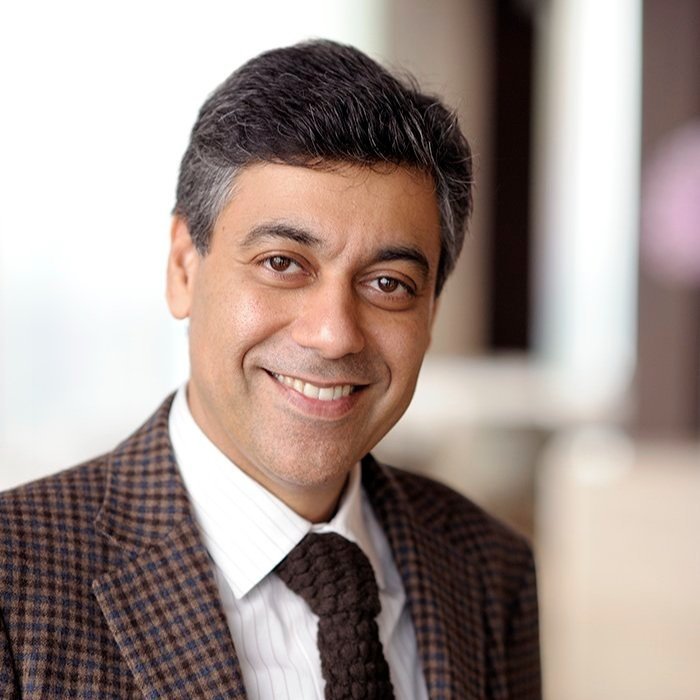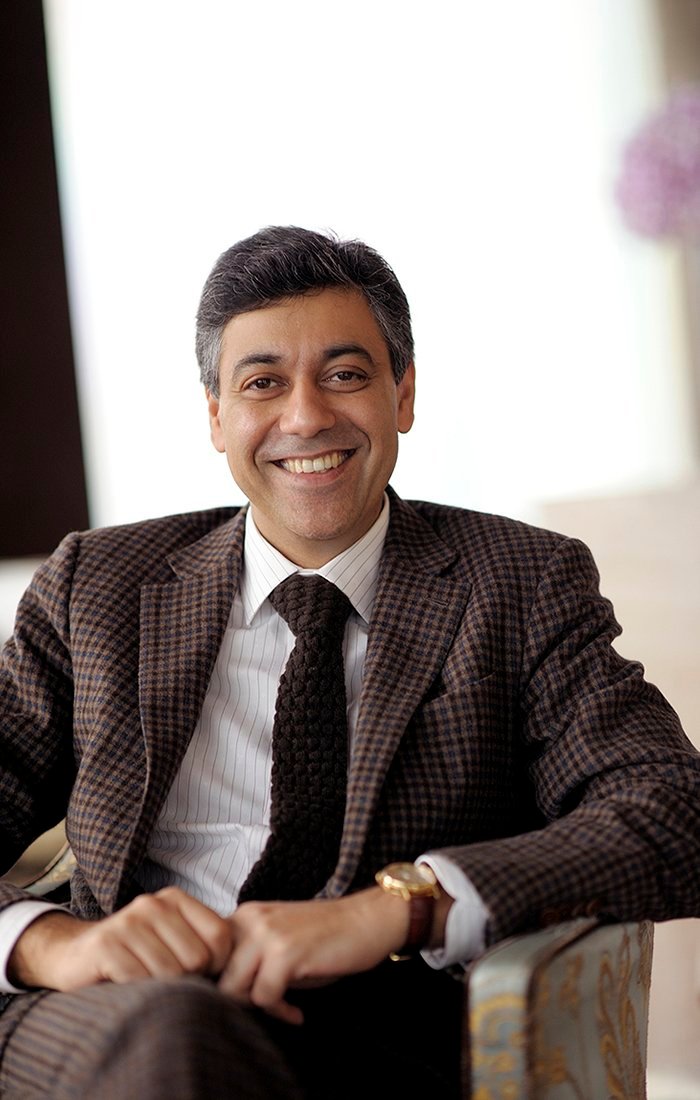I recently went one on one with Deepak Ohri, founder and CEO of lebua Hotels & Resorts.
Adam: Thanks again for taking the time to share your advice. First things first, though, I am sure readers would love to learn more about you. How did you get here?
Deepak: I come from humble beginnings, a small neighborhood in Delhi. As a spunky kid, I was always curious about the world, and would ask my father a lot of ‘whys’. The one main one was ‘Why can’t I cross the road?’ In India, and often in big cities around the world, the rich and poor do not live in separate neighborhoods; they are just one street away from each other. We lived in the lower middle-class side of Tagore Gardens. Across the road, a stone’s throw away, the rich, with their big houses and shiny windows, were clearly visible. There was just one road that divided the rich from the poor, and we were discouraged from crossing to the other side. And yet I dared to cross the road, and one day was invited into a neighbor’s lavish home, I had my first sip of an American Cola. I can never forget that day. It opened me the possibility to dream the dream of leaving my small town to go overseas and pursue my ambitions.
From then on, I knew that I would dare to cross many roads and dare to walk the untrodden path. Stepping out of my comfort zone took courage to face a world that challenged me in many ways. I faced discrimination, nepotism, and deception. I’ve faced some hard knocks that led me to lose everything.
Adam: What experiences, failures, setbacks, or challenges have been most instrumental to your growth?
Deepak: Experiences: Facing my father after I was penniless was the most memorable experience. I was afraid of losing his respect. He was my role model, instilling values of respect and humility. He knew that I was a person who would do everything in life without fear or hesitation, his lessons have helped me stay grounded to my roots and values. I don’t hide my humble beginnings, and I value my childhood days. They have taught me to face life with an inner strength that stems from self-respect.
Failures: Failures were part of my lessons to develop and gain experience. I had weaknesses and each time I failed, I was able to self-reflect and adapt to the changing business environment. I was doing extremely well in Bangkok and was being noticed for my ability as a successful restaurateur. In my excitement, when I opened a restaurant in Frankfurt, I did it with great fanfare. However, I had not done enough research and the restaurant failed miserably. It was a painful moment to realize that my failure was the result of my arrogance. This was an important point in my life where I spent time reviewing my own actions. Hospitality is all about building relationships – these are founded on respect and understanding of the customer’s needs.
Challenges: My journey in hospitality has been quite an adventure. I know what it feels like to be a dishwasher, waiter, cook, employee, and executive. I have never shirked from getting my hands dirty, and at times, I have made certain decisions that many people considered unconventional. I admit I am a bit of a maverick, and at times I do seize opportunities where others see risks.
While I have circled the globe, learning and developing my skills, I also found moments where I was challenged for my actions. For example, I had a plan to curate a Million-baht dinner – It was going to be an experience of a lifetime. It took practically a year to organize this event. There were so many obstacles, that even now when I look back, I wonder where I found the courage. I was challenged from the very beginning. I wanted to get Michelin-star chefs under one roof, not an easy feat. I wanted to create that perfect menu, ambiance and sensory experience, to a group of high-flier celebrities. It was one of the first times in my life that I had experienced a sense of fear and panic. Yet, I didn’t let my fear overcome my plan. The Million-Baht dinner was in 2008 and is still talked about to this day as the most unique emotional most experiential dinner in the world.
Adam: In your experience, what are the key steps to growing and scaling your business?
Deepak: Key steps: For me, a key step is humility. This is the foundation upon which I add more steps. In any business model, having a growth mindset enables us to pursue new opportunities. In terms of an organization, another step is having a strong team of loyal staffs and employees. This is vital to create a culture of enthusiasm. In that kind of environment, it becomes easier to delegate and to innovate. We live in a hyper-competitive market environment therefore the step to expand markets is to have the ability to make swift decisions, that means we are able flow and adapt to new trends. In that sense, maintaining regular connections with customers creates brand loyalty.
Sharing from my experience, when I was shown this empty dilapidated site on the top floor of a skyscraper, I envisioned an outdoor restaurant, the first of its kind. It was an impossible feat to achieve. And yet, I had the conviction and put my reputation on the line to build this restaurant. I found the right people who were able to make what seemed impossible, possible. My pursuit towards my goal was founded on facts, on believers, and open-minded talented individuals. I had clarity on the whole project and put my heart and soul into it, it happened because of the humility, the loyal team, and my vision.
Adam: What do you believe are the defining qualities of an effective leader?
Deepak: Defining qualities would be experience over expertise, strength over power, having a growth mindset, and the ability to face failure. Also, I believe being empathetic with our staff is vital. They are the assets of our industry. These qualities will enable a leader to create the culture conducive for growth and expansion.
Adam: How can leaders and aspiring leaders take their leadership skills to the next level?
Deepak: When I started my career in hospitality, the training I received encouraged a rule-based organization, such that even if someone sneezed, there was a rule for it. I chose to defy this kind of culture and developed a principle-based organization. The fact is that rules can be broken, but principles cannot. Principles create an ambiance of freedom and loyalty. I believe that loyalties toward a person or organization who stands by you, respects you, and supports you is key to progress. Loyalty builds on trust and that is what people appreciate and value in any relationship.
Adam: What are your three best tips applicable to entrepreneurs, executives, and civic leaders?
Deepak: First is to be open to change, secondly is demarketing. This is about creating value for a product or service to a specific audience. The product may not be for everyone, but for those who are using it, they will remain loyal. Some products or services fail because of their marketing strategies. Being clear about the product or service and brand positioning is extremely important to stand out in a competitive environment. Demarketing is about developing long-term trust for the brand and product. At bottom of pyramid ‘Red Bull’ is a perfect example of Demarketing. And, the third tip is to create a happy environment. Happiness should be the agenda for every entrepreneur, every executive, and every civic leader.
Adam: What is your best advice on building, leading, and managing teams?
Deepak: My best advice is that the way we build, lead and manage our teams should be the same way we deal with our customers – with equal respect and attention to their needs. It may seem an odd way to compare, but that’s my experience in hospitality where we consider service staff as assets – without their authentic positive mindset, we cannot equate the same with our customers. If there is a difference in managing the customer and managing the team, then that is where the gap in the service processes create dissonance.
We choose to give our customers the kind of satisfaction that comes from subconscious level, that’s how we lead our lives. Therefore, the creativity and bliss we want to sell to our customers must exist in our teams too. Even today, twenty years running, we don’t have a special training department, we let our customers tell us what is missing, and we fill those gaps. Nothing beats customer feedback. As a result, we have been told that we run the best service and we have the best team. That’s because we do not keep the difference between the customer and the employee satisfaction. And this constant self-motivation to create better service processes emerges from the hearts of our teams.
Adam: What are your best tips on the topics of sales, marketing, and branding?
Deepak: I’ll give only one tip for sales, marketing, and branding. Before that, it is crucial to understand who is the target audience. Having a clear understanding of our customers is necessary. Frankly, you cannot sell or market to everyone. In branding, you need to have positioning. So my simple advice/tip, where marketing is concerned, do the minimum and be as minimalistic as possible. Create a product or service which your customers would want to sell, if they love you, they will market and brand you.
Adam: What is the single best piece of advice you have ever received?
Deepak: The single best piece of advice I’ve ever received is from my late father, and that is: know your roots. In this way, I appreciate that staying anchored to those roots gave me wings to fly. No matter how far or high I fly; I will always be grounded to my roots. And that is how I’m able to stay on the learning path and to innovate.
Adam: Is there anything else you would like to share?
Deepak: Success comes with the cost. And that cost is the pain, how much pain you can bear. In my life, I have faced a lot of pain. I still have a heart; I still have my soul – I don’t like to complain about the pain, but that’s the fact of a successful life. Life is not without its struggles, and it is with recognizing there will be pain, I am able to increase my threshold to endure more. This is how I can achieve success in my area of experience. I’m training myself to endure more pain, the reason for that is everyone has a breaking point, I haven’t received mine yet. When I say ‘pain’ I mean the pain of rejection, the pain of failure, the pain of losing, and facing defeat and still having the courage to move on. Taking risks in life requires the ability to endure that kind of pain and still keep going forward on that bridge to success, it leads to a destination that is both authentic and valued by others.
Another point is that nobody’s perfect. You should never call yourself perfect, let your customers tell you that you’re perfect. And that’s when you know that you have succeeded.









